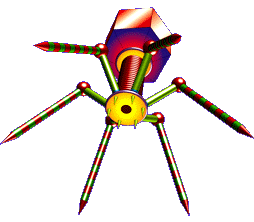

Approximately 1930s through 1940s reconciliation of the concepts of Darwinism with those of Mendelian genetics.
Also known a bit more formally as the Modern Evolutionary Synthesis, etc., the Modern Synthesis involved a coming together of numerous individuals from different disciplines in an effort to try to understand the implications of genetics as well as other facets of an increasingly more modern appreciation of biology on our understanding of the details of Darwinism.
Basically, Darwin's ideas, first published in 1859, were extremely robust but nonetheless limited by the understanding of biology of his time. As more information became available, such as the rediscovery of Mendelian Genetics in the early 1900s, it became necessary to determine how it and Darwinism could be compatible.
There was never any guarantee that this newer knowledge in fact would be compatible with Darwinism. That is, Darwin's various hypotheses were all good hypotheses in the sense that they were falsifiable, just as was later true, for example, with Einstein's Theory of Relativity. That is, in principle newer or better information could come to contradict these scientific ideas such that they would be found to be less useful as we strive to fully understand our Universe.
Just as with the Theory of Relativity, however, Darwin's hypotheses were found to be consistent with more modern scientific understanding. The Modern Synthesis represented a key moment where the robustness of Darwinism in light of this more modern understanding of biology came to be fully appreciated.
What is perhaps most interesting about Darwinians and the Modern Synthesis that followed is that these ideas not only have stood the test of time but in many ways are better supported by modern biology than they were by biological understanding in the past. This is not to say that everything in biology is understood or that the details of evolutionary theory are necessarily straightforward, simple to appreciate, or "set in stone". Nonetheless, our understanding of why organisms and ecosystems exist in the manner that they do is now inseparable from an evolutionary perspective.
Indeed, Dobzhansky – a key participant in the Modern Synthesis – famously summed up the spirit of the Modern Synthesis, over a decade after its achievement, by noting that,
"Nothing in biology makes sense except in the light of evolution"
For more on this topic, see Wikipedia and Google. Contact web master. Return to home.











